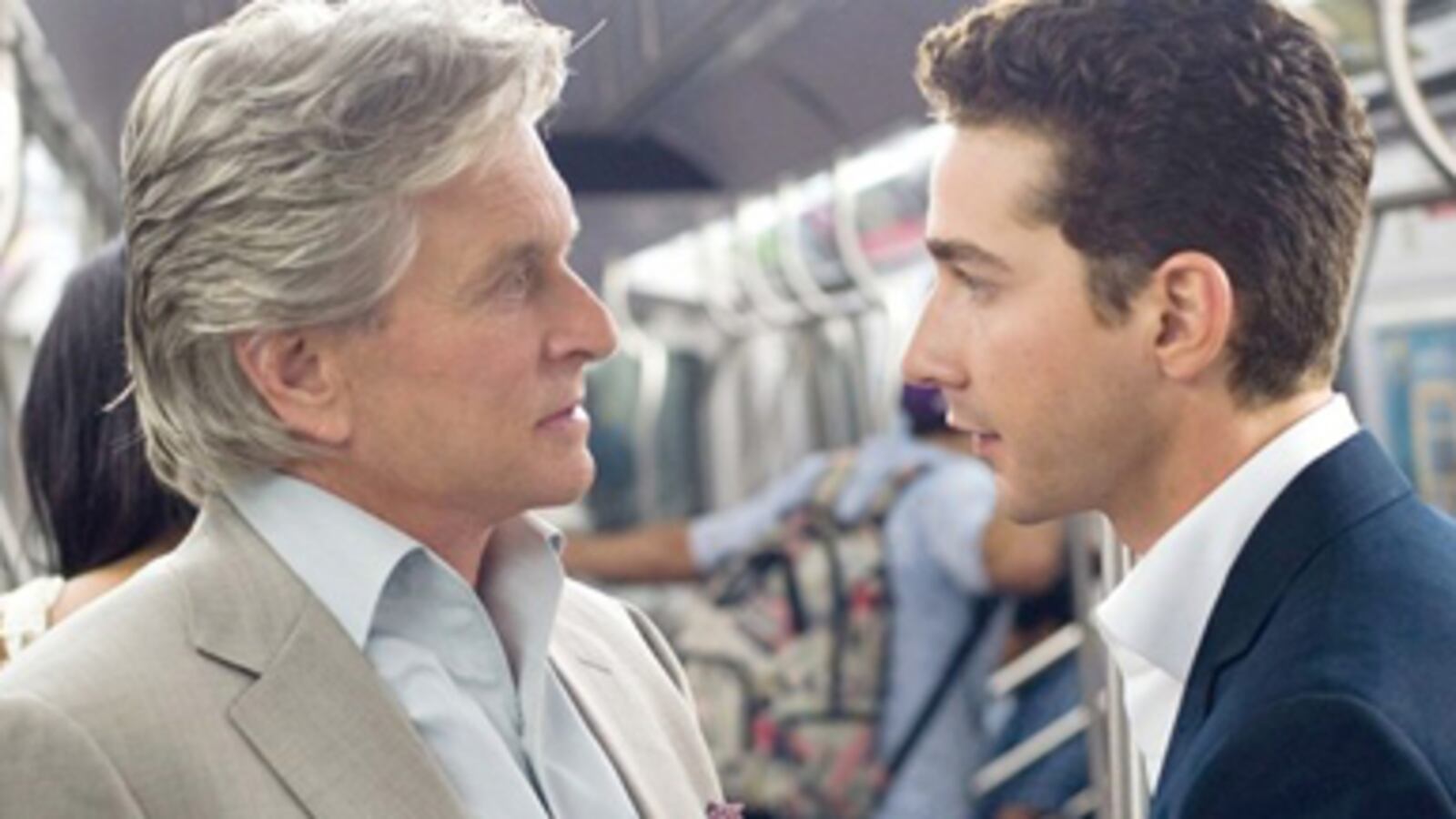Gordon Gekko can’t seem to make up his mind. And because of that, we the viewers have an equally hard time making up our minds about him in Oliver Stone’s new sequel to his 1987 hit film Wall Street.
If the original Wall Street was a portrait of an era, its moral universe was relatively clearly drawn. Blue Star good, corporate raider bad. Penthouse good, insider trading bad. Bud Fox straps on wings and flies too close to the Gekko sun. Hubris leads to a fall. Contemporary art and willowy blondes only take you so far, it turns out. Malefactors are punished. The universe is restored to balance.
This time, Gekko is a repentant father longing to make amends to win his daughter’s approval who also essentially steals a fortune from her to get back in the game.
Gekko is a humble reformed crook who has paid his debt to society and also a sleek alpha male puffing on a phallic cigar who can’t wait to gloat about his prowess at making money.
Gekko is a teacher who shares his knowledge. At times, one could swear that one had wandered into a parallel universe version of An Inconvenient Truth, as Gekko lectures us on the hazards of leverage and financial meltdown. Particularly priceless is when he calls a group of young students “ninjas”—no income, no job, no assets—adding, “You have a lot to look forward to.” But the same guy who observes that the mother of all evil is speculation turns up later in the film dressed in a power suit and giddy over his ability to turn $100 million into $1 billion. I don’t think he earned it at $25 an hour; leverage must have figured in there somewhere.
If we fast-forward 23 years to Wall Street: Money Never Sleeps, we are treated to a curiously different kind of moral equation, the morality of “and also” rather than “either or.”

This “and also” value system also comes across in Gekko’s attitude to innovation. He is clearly cynical about clean tech and derides the “fusion delusion” as the next bubble. In his words, “the only green is money.” Yet at the end of the film, he gives $100 million away to support alternative energy and do something “good” with his money.
• Randall Lane: Wall Street on Wall Street• Randall Lane: Gordon Gekko’s Secret RevealedThe film’s title may hold its final moral clue. If money never sleeps, then can greed not be far behind, even in these pinched times? No one in the film seems to be hurting for nice apartments and clothes, for example, even with a financial meltdown that has come from “the mother of all bubbles.” As Gekko himself puts it, “Greed got greedier with a little envy thrown in.”
So we’d all like to find a little absolution in these troubled times, and in fact in the end Gekko’s daughter does melt and forgive him, while we on the other hand—adding up all the “and alsos”—don’t know whether to follow suit.
This “and also” value system comes across in Gekko’s attitude to innovation. He is cynical about clean tech, yet in the end, he gives $100 million to support alternative energy.
Gordon, make up your mind. Maybe a little therapy would help.
Dubbed "Mr. Creativity" by The Economist, John Kao is a contributing editor at The Daily Beast and an adviser to both public and private sector leaders. He is chairman of the Institute for Large Scale Innovation, whose i20 group is an association of national innovation "czars." He wrote Jamming: The Art and Discipline of Business Creativity, a BusinessWeek bestseller, and Innovation Nation. He is also a Tony-nominated producer of film and stage.






